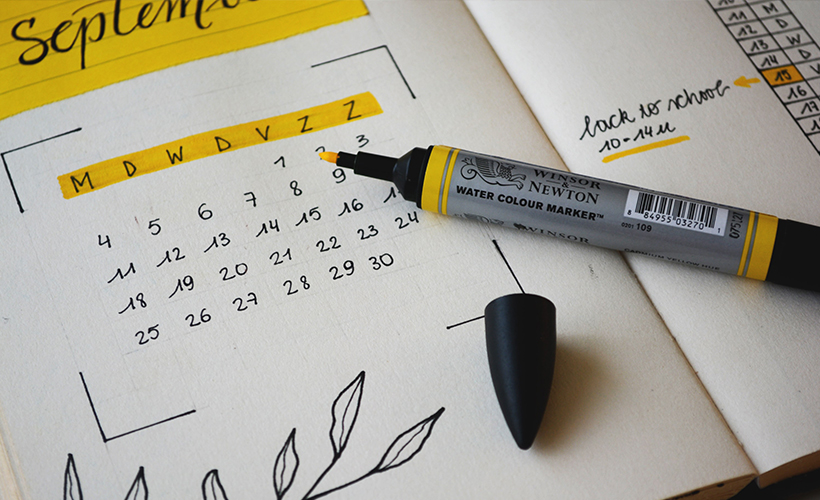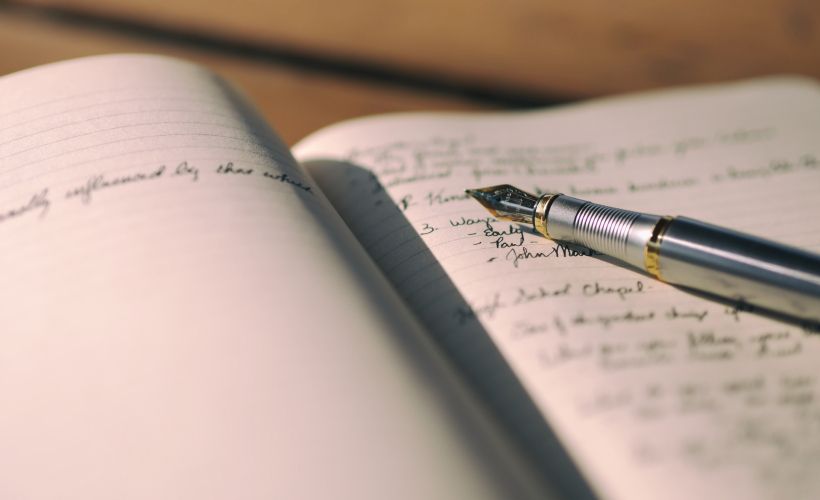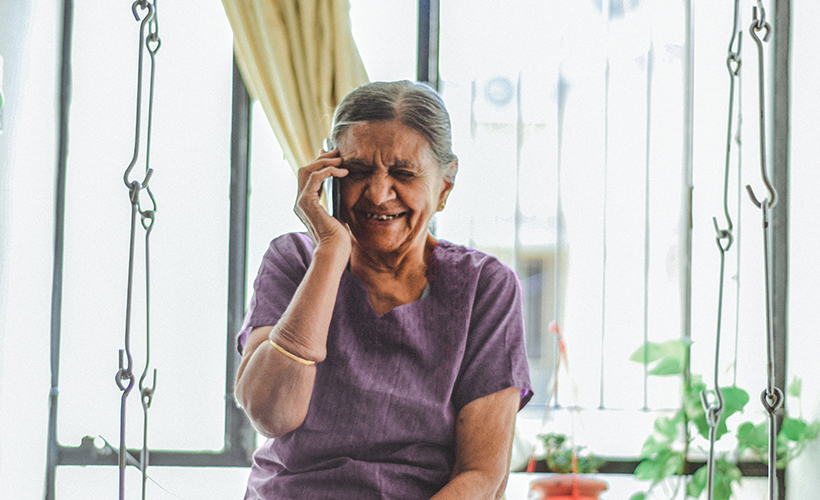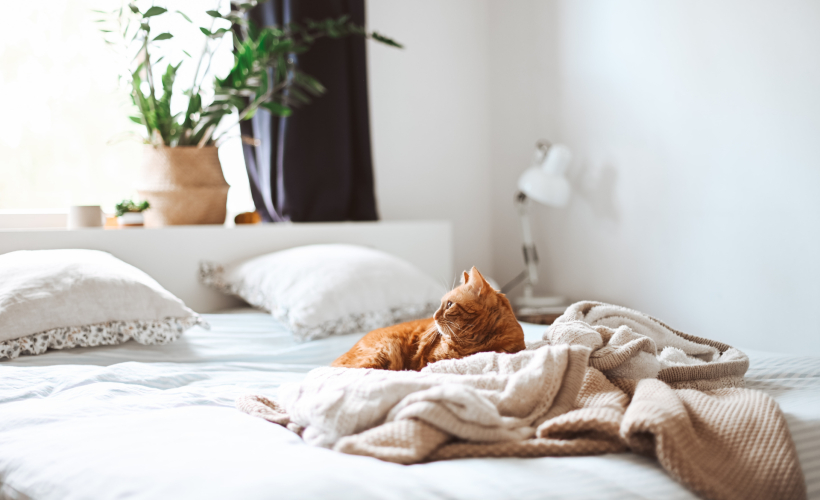
In Malaysia, we’ve just passed the two-month mark of what our government calls the Movement Control Order (MCO) and a few weeks of the Conditional Movement Control Order (CMCO). So, how’s everyone doing? We’ve been trying to take things as it comes. There have been a few brain fog days, and days when we feel like we have this new routine on lock. The anxiety that comes with not knowing what the future looks like is exhausting, and it’s also completely normal. What do we do about it though?
We spoke to Joel Low, the Director and Clinical Psychologist of The Mind Psychological Services and Training for helpful and healthy advice on how we can look after our mental health during the MCO. Here are suggestions on how to better care for yourself, and your loved ones, as shared by a clinical psychologist.

Being unable to make plans is quite a feat for some of us. Is this normal or is this a need to be in control?
Joel (J): I think it’s a mix of both. Whilst in most cases control is quite impossible, there are things we can control, and that gives us all a measure of comfort because we are able to predict some things. But the more you think of it, the more you realise that what we used to think of as control, is really nothing more than planning; the hope that our plans will unfold smoothly. More often than not, there will be changes that we will [need to] adapt to. The more that we’re able to accept this, the more at ease we will feel given our inability to do much planning.
So, it’s about living in the moment. Where can we start with that?
J: I think a good start is to understand what being mindful is. Mindfulness is essentially calming our minds, and gently asking it to not focus on the past or future, but rather, focus on the here and now. We spend so much time in the past, replaying bad memories, or in the future, thinking about different eventualities that may not even happen, which can result in so much anxiety. If we just focus on the here and now, we’ll find that it’s quite peaceful in the right here and now.

That’s comforting to know! So how do we practice being mindful?
J: Start by engaging in activities that pulls your attention to the here and now, or ones you can zone out to. For example, grab that dusty colouring book you bought ages ago and fill in those pages. Or if you’re having a meal, really experience it. Look at the colours, smell the aromas, feel the texture in your hands or in your mouth, taste the flavours, and listen to the sounds it makes as you cut or bite into it. Simple tasks that really hold our attention in the here and now is how you’ll be able to be mindful.
We’ll give that a try. Being at home and not having a lot to do has given people space to look inwards, and be more aware of their emotions. What can they do to avoid being consumed by their thoughts?
J: There are some simple but effective ways to stay on top of our thoughts, especially the negative ones. First, it would be a good idea to stay as social as possible. We’re social creatures, and the social distances that we have had to enforce means that we have a lot more idle time that our minds can use to run amok. Using social media is a good way to ensure that the most negative of our thoughts has a healthy outlet.

Yeah, having weekly calls with friends and family has definitely helped maintain our structure. What else can we do?
J: There’s a lot of good in being able to stay active, so make sure that you’re not just commuting between the bed, to the living room couch, and back again. Make time to engage in activities, such as gardening, exercise, and the like. Get creative, and make sure to keep the body guessing! I would also suggest that you get a journal going. There’s something incredibly restorative and satisfying with taking a pen and writing down our thoughts on a piece of paper. Psychologically, doing so will act as a way to help us decompress, release the thoughts that we have, and give us some measure of relief.
Speaking of relief, we’ve seen many posts that encourage people to seek emotional support during this time, but the act of asking for help is something many struggle with. What can a person do to be comfortable to ask for support?
J: There’s this old saying that applies, “You can bring the horse to the river, but you can’t force it to drink.” It’s a good analogy for how clients need to want to get help in order for that help to be effective for them. So, moving from there, I think the most important thing for an individual is to have an open mind when seeking help.
Many times, seeking for support is going to be uncomfortable. Having to open up and share your troubles with someone can be disconcerting, and sometimes, just the thought of doing so can be quite a turn-off. But one question that might help is this: would anything change if I didn’t do something about it? Sometimes, it can be beneficial to go through that small burst of immediate pain – like getting an injection – for more long-term gain.

That’s a great question to ask ourselves. So, how can we check-in on people we care for without being intrusive?
J: Just drop-in and say hi! I think sometimes just offering ourselves up for conversations with friends and family can be a very powerful opening salvo, and allows the person we’re concerned with to open up to us. Just being there can be one of the most powerful ways to show someone that you care.
What does healthy emotional support look like?
J: One that has good, strong boundaries. I think sometimes people intertwine the idea of support with one’s own anxiety. We want to support others because we care for them and because we’re anxious for their wellbeing. When you marry the two, that’s when emotional support can get unhealthy.
For example, parents who deny their children access to friends and social opportunities for fear of the possibility of their kids being hurt somewhere down the line. Whilst the intentions are good, it also means that the child is deprived from learning to stand on their own feet.
So, healthy emotional support would be the opposite of that, where we’re able to show our loved ones that we care and that we’re available, but at the same time, they get to choose when they would like access to us. Healthy support would also mean that we know when to intervene, but only when we know that something catastrophically bad is going to happen. But anything short of significant danger to life and limb, it’s good to take a step back and let some mistakes happen, as that’s the only way we can learn at times. Sometimes, good support means we have to take a step back away from our loved ones, and be there when they need help to pick up the pieces.

That’s a good measure to have. What are some healthy coping mechanisms we can practice to keep ourselves grounded while being home?
J: Carving out physical space is a really simple and underrated step in helping us cope during the lockdown. Having dedicated work, play, and sleep spaces are essential! Our bodies crave routine and familiarity. So, when we confuse it by working in our beds, or eating at the workstation, our bodies go into familiarisation mode where it tries to feel its way through the confusion. That’s why when we work in bed sometimes, the temptation to fall back asleep is so strong! Or worse yet, when you’re about to go to sleep, you can’t help but think of the PowerPoint presentation you’re going to present in a few days’ time.
Ugh, the struggle is too real (shout out to those working in advertising!)…
J: Another simple step that you can do for yourself is to keep a routine! I’ve been hearing a lot of individuals saying that the timelines for work and being at home have completely blurred, so they don’t know when their day starts or ends, or does it ever? So, whatever pre-lockdown routine you used to have, make sure to stick to it. If you need to, set reminders or draw up an old-fashioned timetable to make sure that you have time for both work and life!

Another struggle we’ve seen is ‘brain fog’ and there’s conflict between ‘pushing it aside to get work done’ and to ‘let the emotions ride out naturally’, but the latter takes a long time. How can we clear our minds effectively while still being kind to ourselves?
J: I think occurrences like ‘brain fog’ or ‘hitting a brick wall’ and other such things are your mind’s way of telling you that you need a break. It’s only natural for all of us to need a break now and then; even machines need breaks!
Being kind to ourselves starts with us accepting that we have limitations, and that we’re perfectly imperfect. We will have things we excel at and that others can’t do; and there are going to be things that others can do better than us. So, if we do get brain fog and need a break, then have that break and give yourself some time to kick back and relax, safe in the knowledge that you’re doing the best that you can. You’ll find sometimes that taking that hour or so to reset can give you a great big boost in productivity in the long-run!
That said, if you do find yourself in a situation where that brain fog persists for days on end, and there’s no break from it, do consider reaching out for help from a mental health professional. Best case scenario, it’s nothing to worry about and you just need a short vacation. Worst case scenario, you’ve gotten yourself checked out and you’ll be in good hands with someone who can help you through it.
The Mind offers individual, couple, family, and behavioural therapy amongst others. Browse through its services here if you’d like to speak to someone. We’d just like to reassure you that it takes a lot of strength to ask for support, and there’s absolutely nothing wrong with it.
Remember to take care of yourself first, so you can take care of others more effectively!



